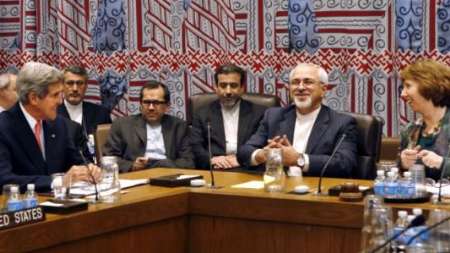ID :
334097
Wed, 07/02/2014 - 13:06
Auther :
Shortlink :
https://oananews.org/index.php//node/334097
The shortlink copeid
6th round of nuclear talks, an historical opportunity: Iran Daily

Tehran, July 2, IRNA - An English-language paper published Wednesday believes the 6th round of nuclear talks is an ˈhistorial opportunityˈ, adding that if the Iranian negotiating team reaches a final draft with the P5+1, it could be said that a deal on the countryˈs nuclear program, as a confidence-building program of “Joint Plan of Action”, known as Geneva Agreement, has been concluded.
By implementing the agreement’s articles, Iran could build confidence in the global community and fulfill its promises over the peaceful nuclear activities added ˈIran Dailyˈ in its Opinion column.
This comprehensive solution would enable Iran to fully enjoy its right to nuclear energy for peaceful purposes under the relevant articles of the Non-Proliferation Treaty in conformity with its obligations.
The sixth round of nuclear talks between Tehran and P5+1 (the five permanent members of UN Security Council plus Germany) opens on July 2 in the Austrian capital of Vienna, while many Iranians as well as regional and international observers are closely watching for signs of success.
Speaking at the end of the fifth round of talks, Iran’s Foreign Minister Mohammad Javad Zarif said differences remain between the two sides over key issues related to Iran’s nuclear energy program, which must be negotiated and moderated.
“Although there is concord over some parts of the draft agreement, there are differences in terms of both form and content,” he said.
Zarif and European Union Foreign Policy Chief Catherine Ashton will preside over this round of talks to reach a comprehensive nuclear agreement after expert-level discussions and elimination of other irrelevant issues.
Once discussions reach a relatively desirable result, both foreign ministers will finalize the deal.
If Zarif and Ashton reach a final agreement, foreign ministers of the seven countries, namely Iran, Russia, China, Britain, France, the US and Germany, will be invited to the Vienna meeting. They will receive the final text and sign the prospective deal after making small changes, the paper said.
They will then present the text as an international document to the world. Multilateral talks are influenced by both interactions among negotiators and international factors.
Fortunately, Iran has been successful in both aspects of the talks in the past five months and the countryˈs negotiators could handle the internal mechanics of talks.
However, external factors are not permanent. Global politics are always in a state of flux and will influence the talks in terms of interests and national security considerations of the negotiating parties. Thus, multilateral talks are more at the risk from external factors.
This round of nuclear talks is a historical opportunity to see how these interests and national security concerns influence Iran’s nuclear program and the draft text, which ensure the peaceful nature of Iran’s nuclear activities in a definite schedule.
In this round of talks, Iranian negotiators are facing new issues that must be considered in drafting the text.
The problem begins when a country proposes a radical stance that violates Iran’s interests, security or the very basis of Iran’s nuclear activities.
Thus, drafting a text in line with the different viewpoints and interests of these countries is a difficult task, which must be fulfilled in 19 days, the paper concluded./end





